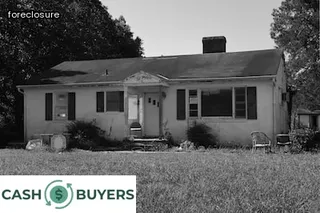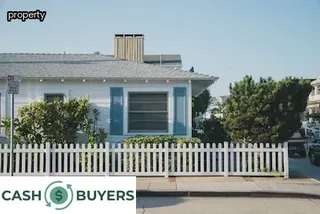Navigating Nevada's foreclosure laws can be a daunting task for homeowners, but understanding the legal process is key to protecting your rights. In Nevada, lenders are allowed to foreclose on properties when an owner has defaulted on their mortgage payments.
The state requires that lenders file a complaint in court and serve the homeowner with a summons before they can proceed with foreclosure. Once this has been done, the homeowner may have up to 20 days to respond and contest the foreclosure.
If no response is made within the allotted time, the lender can then proceed with a judicial sale of the home. Homeowners must also keep in mind that certain types of mortgages may require additional steps before foreclosure can take place.
It is important for homeowners to familiarize themselves with all relevant facts concerning their mortgage in order to best protect their rights against any foreclosure proceedings initiated by their lender. Additionally, there are resources available throughout Nevada to assist homeowners in understanding and navigating through the foreclosure process.
Consulting these resources and seeking professional help if needed can be beneficial in navigating Nevada's foreclosure laws during this difficult time.

In the state of Nevada, homeowners facing foreclosure must receive a preforeclosure notice before any action can be taken on their loan. This notice must include information about the amount of money owed to the lender, potential loss mitigation options or other foreclosure alternatives, and contact information for credit counseling services.
Homeowners must receive this notice at least 20 days before any further action is taken on their loan. The preforeclosure notice should also list important deadlines and provide clear instructions on how to proceed in order to avoid foreclosure.
It is essential that homeowners understand all aspects of the preforeclosure notice and take necessary steps to avoid foreclosure if possible.
Navigating Nevada's foreclosure laws can be a challenge for homeowners facing financial difficulty. It's important to know the rules and regulations that govern how lenders may proceed with a foreclosure in the state.
Homeowners should understand what is expected of them and the rights they are afforded with respect to foreclosure proceedings. Understanding the timelines associated with filing notices, responding to notices, and filing legal challenges is essential to protecting one's rights as a homeowner.
Additionally, homeowners should become familiar with alternative options such as loan modification or mediation, which are available in some cases. Ultimately, it is important for Nevada homeowners facing foreclosure to be aware of their rights and responsibilities under state law in order to make informed decisions about their options for managing their debt.

Navigating Nevada's foreclosure laws can be a daunting task for homeowners, so it is important to understand the options that are available in order to avoid losing your home. One way to do this is by working with a qualified lawyer or housing counselor who has experience in foreclosure law.
They will be able to provide advice on how to negotiate with lenders and can also refer you to other resources that may help you stay in your home. Additionally, Nevada offers a number of government assistance programs such as the Hardest Hit Fund which provides financial aid and counseling services to struggling homeowners.
You may also be eligible for loan modifications, refinancing, or other types of debt relief if your financial situation qualifies. Finally, it is critical to keep up with payments on any existing loans and avoid taking out additional loans in order to reduce the risk of foreclosure.
By being aware of all the available options and taking proactive steps towards avoiding foreclosure, homeowners in Nevada can protect their homes and keep them safe from repossession.
When a homeowner in Nevada is facing foreclosure, they may be able to reinstate their mortgage loan after defaulting if they meet certain criteria. The first step is to speak with the lender's attorney and see what options are available.
This may involve submitting a reinstatement plan that outlines how the homeowner intends to catch up on payments and keep up with future loan payments. If granted, this plan can give the homeowner time to pay off back payments and avoid foreclosure proceedings.
The court must approve any such plans before they can be put into action. Homeowners must also remain mindful of any deadlines set by the court as failing to meet these could result in foreclosure proceedings beginning again.
Additionally, some lenders may offer alternative payment arrangements such as loan modifications or forbearance agreements which are both legal documents that can help homeowners avoid foreclosure. Lastly, it's important for homeowners to remember that even if they are granted a reinstatement option, interest and late fees will likely still accrue which should be taken into consideration before agreeing to a plan.

Navigating Nevada's foreclosure laws can be a difficult task for homeowners, and understanding the different types of foreclosures available is essential. Nevada has two types of foreclosures: judicial and non-judicial.
A judicial foreclosure involves a court process in which a judge oversees the sale of the homeowner’s property to pay off the mortgage debt. Non-judicial foreclosures are handled without court involvement, typically by a third-party trustee or mortgage servicer who will handle the sale of the home.
It is important to note that while judicial foreclosures take longer than non-judicial ones, they offer more opportunities for homeowners to negotiate with their lender and potentially avoid foreclosure altogether. Homeowners should also understand that in Nevada, lenders must give borrowers an opportunity to cure any defaulted payments before initiating a foreclosure as well as provide them with notices throughout the process so they are aware of their rights.
Knowing all this information can help reduce stress during such a difficult time.
A breach letter is an important document for Nevada homeowners to understand when navigating the state's foreclosure laws. It is a formal notice from the lender that tells the borrower that they are in default of their loan obligations.
The breach letter will state why the borrower is in default and how much money must be paid to bring the loan current. This document also outlines any additional steps that must be taken, such as working with a mediator or providing proof of financial hardship, to avoid foreclosure.
Understanding what a breach letter is and what can be done in response to one can help homeowners in Nevada protect their property rights and avoid foreclosure.

Navigating Nevada's foreclosure laws can be a confusing and overwhelming process for homeowners. It is important to understand the state's deficiency judgment laws, which allow lenders to still pursue further monetary collection after a foreclosure sale.
When a lender forecloses on a property in Nevada, they must follow certain procedures, such as providing notice of the sale and filing certain documents with the court. If the proceeds from the sale are insufficient to cover what is owed on the loan, then lenders may try to obtain a deficiency judgment against the homeowner.
This means that they will seek additional money from the borrower in order to satisfy their original loan amount. In some cases, lenders may even attempt to garnish wages or place liens against other property owned by the borrower.
Understanding these laws can help homeowners make informed decisions when facing foreclosure in Nevada.
In Nevada, timelines for moving out after foreclosure can vary depending on the type of foreclosure a homeowner is facing. Most commonly, homeowners will face a judicial foreclosure, which requires lenders to file a lawsuit in court.
After the court issues its judgment and orders the sale of the property, the owner must vacate within 30 days or else they may be subject to eviction proceedings. An expedited Foreclosure Process is also available in Nevada that allows lenders to foreclose without filing a lawsuit; however, this process does not allow owners any additional time beyond the 30-day period for vacating.
Lastly, there is an alternative option known as Deed in Lieu of Foreclosure that allows owners to voluntarily surrender their deed to avoid foreclosure with their lender’s consent. In this instance, despite no longer being able to stay in their home, owners are given 90 days from the deed transfer for relocation purposes.
It's important for homeowners facing foreclosure in Nevada to be aware of these timelines and seek appropriate guidance from legal experts if needed.

Homeowners facing foreclosure in Nevada may feel overwhelmed and helpless, but there are options available to avoid foreclosure. Before reaching the stage of a foreclosure sale, homeowners should consider negotiating with their lender.
It is important to remember that lenders want to get paid and would rather not foreclose on a property. Homeowners should be proactive and reach out to their lender as soon as possible to discuss any potential options for loan modification or repayment plans.
Researching the state’s foreclosure laws can help homeowners understand what their rights are when it comes to negotiating with their lender. Knowing the timeline of events leading up to the foreclosure sale can also give homeowners an idea of how much time they have before a sale occurs and aid in preparing for negotiations.
Additionally, it is important for homeowners to look into any applicable government programs that might offer assistance like loan modification or refinancing. Being well-informed on all potential options and understanding what kind of assistance could be available will put homeowners in a better position when negotiating with their lender.
With the right knowledge and preparation, homeowners may be able to successfully negotiate and save their home from foreclosure.
When a homeowner in Nevada goes through foreclosure, they have the right to redeem their home. This means that they can reclaim the property by paying off the entire amount owed on the mortgage plus any associated costs and fees.
Homeowners who are interested in redeeming their home after foreclosure should be aware of certain timelines and procedures that must be followed in order for the process to be successful. Generally, homeowners must pay off the debt within 90 days from when the Trustee's Deed was recorded.
In addition, if they are unable to make the full payment, they may negotiate with their lender to reduce or spread out payments over time. It is important to note that if a homeowner does not redeem their home within this timeline, they will no longer have ownership rights and the lender will take possession of it.
Homeowners should also be aware that there may be additional costs associated with redemption such as taxes and interest charges which could increase their total payment amount significantly. Those interested in redeeming their homes after foreclosure should consult with an experienced real estate attorney or other knowledgeable professional before beginning this process.

Homeowners in Nevada should be aware of the potential tax implications that come with a foreclosure. Depending on whether or not they receive a 1099-C form from their lender, this could mean that some or all of the forgiven debt may be taxable income to them.
Additionally, even if the homeowner is able to negotiate mortgage debt relief with their lender, this could still have an impact on their taxes as well. If a portion of the loan is forgiven and not paid back, then it is considered income for tax purposes and must be reported as such.
It’s important for homeowners in Nevada to consider the possible tax ramifications before deciding whether or not to pursue a foreclosure in order to protect their financial future.
Navigating Nevada's foreclosure laws for homeowners can be a daunting task, but it is important to know that there are protections under federal law during the process. Homeowners should be aware of their rights as outlined in the Fair Debt Collection Practices Act, which prohibits debt collectors from using unfair or deceptive practices when they are trying to collect payment on a debt, including mortgage payments.
Additionally, the Real Estate Settlement Procedures Act outlines how lenders should handle foreclosure proceedings and protects homeowners from inappropriate fees and charges associated with the process. Homeowners also have certain rights when it comes to the sale of their home; for example, if they are unable to make payments on their loan, they may have up to three years after the foreclosure sale to redeem their property.
They also have a right to attend all court proceedings related to their property and may request an accounting of all costs associated with the foreclosure sale. Knowing these protections can help relieve some of the stress that comes with navigating Nevada's foreclosure laws and provide some peace-of-mind during this difficult time.

Mortgage servicers must abide by Nevada’s foreclosure laws when processing payments from homeowners. State law dictates that servicers must follow certain procedures and timelines when dealing with delinquent borrowers, with some steps required to be completed before foreclosure can begin.
Servicers must provide detailed notices to homeowners that explain the foreclosure process, including their right to a loan modification or other options that may be available. They must also provide an itemized statement of the borrower’s account and offer a phone number to call for assistance.
Before sending a notice of default, the servicer must send a written letter allowing the homeowner at least 30 days to cure any delinquency in order to avoid foreclosure. In addition, they are required to notify the homeowner of any changes made after a payment is accepted by providing written notification within 10 days of receipt.
Once a notice of default has been filed, Nevada requires mediation services be provided free of charge if requested by either side. It is important for homeowners facing foreclosure in Nevada to understand all their rights under state law and what expectations mortgage servicers must adhere to during this difficult time.
Navigating Nevada's foreclosure laws can be overwhelming for homeowners. Knowing that your home is at risk of foreclosure is a difficult and stressful situation to experience, but it does not have to be the end.
There are alternatives to letting your home go into foreclosure that may help you keep your home and avoid damaging your credit score. Refinancing with a lower interest rate or loan amount may help reduce the mortgage payments and bring them back within reach.
You can also work with the lender to restructure the loan terms, often allowing you to spread out past due payments over a longer period of time. Additionally, if you are already behind on payments, you might qualify for a forbearance plan that allows you to temporarily suspend payments while still accruing late fees and interest.
Ultimately, it is important to explore all possible options before letting your home go into foreclosure in order to determine which alternative will best suit your needs.

As a tenant in Nevada, it is important to know your rights when navigating through the foreclosure laws. If you are living in a home that is being foreclosed upon, you are still entitled to certain rights, such as the right to remain in the property until the eviction process is complete.
Understanding the legal process can help ensure that your rights are protected and that you aren't taken advantage of during this difficult time. You may also be able to negotiate rent payments or obtain assistance from government programs in order to keep your tenancy.
Additionally, if you are facing eviction due to an owner's failure to pay their mortgage, you may be eligible for relocation assistance depending on where you live. It is important to research all of these options so that you can make an informed decision about how best to proceed in a foreclosure situation.
When it comes to navigating Nevada's foreclosure laws, some homeowners may opt to work with an attorney for their defense. This could be beneficial in a number of ways, such as having access to legal advice and resources that may not be available otherwise.
On the other hand, hiring an attorney can also present its own set of challenges, including costs and availability. When considering taking on legal representation during a foreclosure defense, it is important to weigh all of the pros and cons before making a decision.
The cost of legal fees can be high depending on the complexity of the case, but in some cases, this cost could outweigh any potential losses if the case is lost without an attorney's assistance. Additionally, finding an experienced lawyer who specializes in foreclosure defense might not be easy.
It is important to research attorneys thoroughly before committing to one so that you are confident that you have chosen someone with appropriate knowledge and experience for your particular situation. Ultimately, whether or not it is worthwhile to hire an attorney for a foreclosure defense depends on each individual homeowner's unique circumstances.

Navigating the foreclosure laws in Nevada can be a daunting task for homeowners, but there are resources available to help. The Nevada Housing Division provides a wealth of information online, including details about how the foreclosure process works, what rights and obligations a homeowner has during the proceedings, and how they can seek assistance.
Homeowners should also familiarize themselves with the Nevada Department of Business and Industry's regulations related to mortgage lending, as these provide important protections to consumers when dealing with their lender. Additionally, homeowners may wish to contact their local legal aid organization or hire an attorney who specializes in foreclosure law for more detailed guidance.
With the proper knowledge and assistance, homeowners have a good chance of navigating Nevada's foreclosure laws successfully.
Foreclosing on a home in Nevada typically takes between 90 and 150 days, though the timeline can vary significantly depending on the circumstances. The foreclosure process begins when the lender records a Notice of Default with the county recorder for the county where the property is located.
The homeowner then has 90 days from the date of recording to cure the default or enter into a repayment plan with their lender. If no action is taken by the homeowner, then they will be served with a Notice of Sale, which initiates a minimum 45-day period prior to a foreclosure sale.
During this time, homeowners can still take action to stop or delay their foreclosure such as filing for bankruptcy protection or negotiating with their lender directly. Ultimately, once all legal requirements are met and no other action is taken by the borrower, then their home may be sold at auction either to another private party or back to the lender.

For many homeowners, the decision to let a house go into foreclosure is typically one of desperation. It is usually the result of financial hardships or other extenuating circumstances, such as job loss, medical bills, or divorce.
These struggles can be overwhelming and cause individuals to feel overwhelmed by their debt. With expenses piling up and no other options available, some homeowners make the difficult decision to let their house go into foreclosure.
This may be done in order to prevent further damage to their credit score or avoid having to pay additional fees associated with a loan modification or short sale. Additionally, some homeowners may choose foreclosure because they cannot make their mortgage payments due to an inability to obtain refinancing with better terms.
No matter why someone chooses foreclosure, it is important for them to have the right information before making any decisions so they can make informed choices about navigating Nevada's foreclosure laws.
In Nevada, a foreclosure is the legal process by which a lender reclaims and sells a homeowner's property when they have not made payments on their mortgage. The foreclosure process begins when a homeowner’s loan is in default.
The lender then files a Notice of Default with the county recorder and sends the homeowner a copy. If the loan remains in default, the lender can then file an Order to Show Cause with the court, asking for permission to proceed with foreclosure.
After that, the court issues a Notice of Sale that states when and where the property will be sold at public auction. Once the home is sold, if there are any proceeds left after paying off all liens and expenses related to the foreclosure sale, those proceeds will go to the former homeowner.
It is important for Nevada homeowners to understand their rights under state law so that they can protect themselves throughout this process.
Foreclosure is a stressful process that can be difficult to navigate. If you are a homeowner in Nevada facing foreclosure, there are steps you can take to try and stop it.
The first step is to contact your lender as soon as possible. You may be able to work out an arrangement such as a loan modification or forbearance plan that allows you to catch up on payments.
You should also be aware of the foreclosure laws in Nevada, which require lenders to provide homeowners with written notice of their intent to foreclose and allow for mediation before the sale of the property. Additionally, filing for bankruptcy may also help you stop foreclosure in Nevada by giving you time and protection from creditors while you work out a solution with your lender.
Taking advantage of government programs or refinancing may also help prevent foreclosure. Lastly, speaking with a knowledgeable lawyer about your situation can provide insight into other options available for stopping foreclosure in Nevada.
A: Under Nevada Foreclosure Laws, homeowners may be eligible for a repayment plan or loan modification if they act quickly. Homeowners can also expect to receive a notice of default and a notice of sale from the lender. Additionally, homeowners should be aware that their credit report will be affected if their home goes into foreclosure in Nevada.
A: Nevada homeowners facing foreclosure should expect to receive notice of their rights and options under state laws, including an opportunity to negotiate with the lender or seek assistance from a housing counseling agency. Additionally, they must be given at least 90 days notice before any action is taken to foreclose on their home. It is important for homeowners to understand their rights and take advantage of any options that may help them avoid foreclosure.
A: In Nevada, homeowners facing foreclosure are expected to be aware of their rights and obligations under the Foreclosure Laws. They should take steps to protect themselves from being evicted or losing all equity in their home. Additionally, they should consider all available options, including loan modifications and other alternatives to foreclosure before deciding whether or not to let their house go into foreclosure.
A: Homeowners in Nevada facing foreclosure may be eligible for loan modification options such as reducing the interest rate, extending the term of the loan, or even reducing the principal balance. It is important to contact your lender to discuss possible options and work with them to find a solution that works best for you.